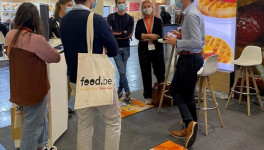
Hybrid is the magic word
The travel restrictions forced food companies to wholly switch to the digital realm. “During lockdown, our meetings with customers were conducted entirely online. In the run-up to the meeting, we would first send customers a number of samples well ahead of time, so we could discuss them during the video call”, Lilly’s Cakes’ Yves Boone explains.
So how did businesses solicit new customers? “If we are unable to get to a prospect, we simply bring that prospect to us by way of digital technology. During lockdown, Frigilunch staged virtual guided tours of our company premises, giving potential new customers a very good understanding of our manufacturing processes and the way we conduct our quality assurance procedures”, explains Frigilunch’s Anthony Botelberge.
Food companies expect the future to bring a mixture of physical and digital meetings. Dely Wafels’ Davy Van Poucke: “We simply cannot do without face-to-face meetings. The reason being that you cannot taste quality across a computer screen. For all that, the corona crisis did bring about a fundamental shift in mindset: we have stopped travelling long-haul distances for every single meeting, for instance. Digital technology is okay for follow-up meetings with existing customers. But for new customers, that initial, physical contact is paramount. Do not underestimate the power of sitting down with people in the flesh.”
Rising costs
With the global economy now gradually regaining traction, food companies are facing huge cost hikes. And it is not just raw material prices that have gone up. The same applies to packaging materials, transport and logistics. Food companies are sounding the alarm and are hoping to see the market stabilise sooner rather than later. Milcobel’s Annick Janssens: “The cost of container transport has skyrocketed. And to add insult to injury, booking containers has become an arduous and time-consuming affair. There is also the worldwide paucity of wood which is having an impact on the availability of pallets and cardboard. Our teams are puling out all the stops to come up with flexible solutions for these shortages in order to keep down the impact on customers.”
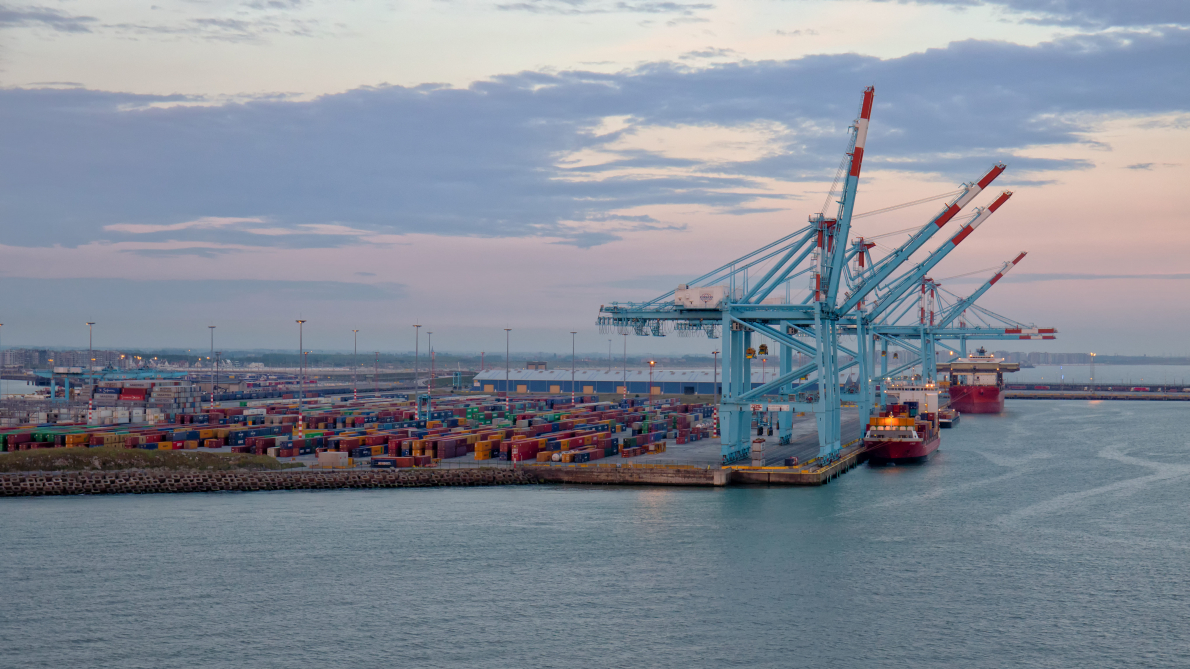
As a food company, we need to be able to pass on these rising costs. “The cost of every single ingredient used by Lilly’s Cakes is going up. Packaging has increased by 30%. We are currently in the process of negotiating the contracts with our suppliers for next year. And their prices are going through the roof. From 2022 forward, consumers will be forced to pay more for products. No two ways about it”, Lilly’s Cakes’ Yves Boone comments.
Read the press release “Belgian food companies see costs explode” >
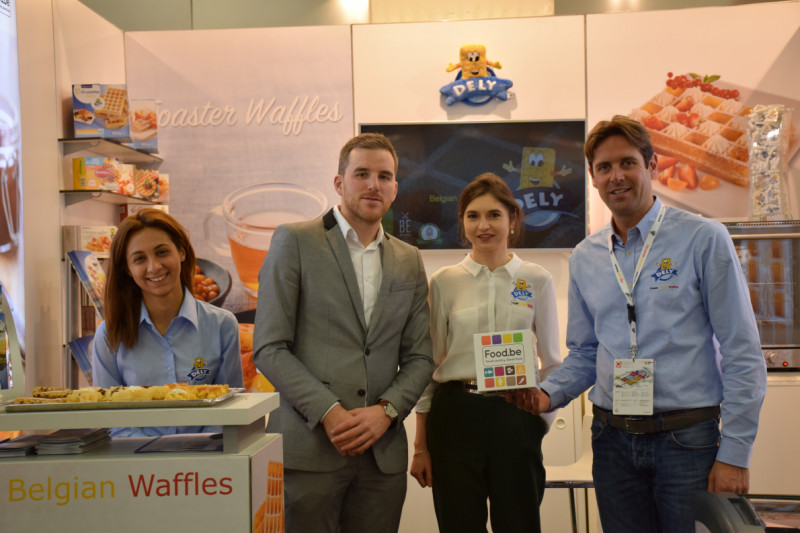
The reinvention of events
Events are important occasions for food companies to seize on new opportunities. After what seems like ages, Belgium recently allowed large-scale open air events to be staged again. But what does the future hold for large-scale indoor events abroad? It remains to be seen what the future will bring. One thing is certain though: physical events will continue to remain a fixture. Trade fairs remain a key medium for food companies to showcase their products to the world, maintain existing contacts and meet new customers. Nonetheless, trade fairs have not escaped the accelerated digitisation wave that came out of the corona crisis either, which has forced them to reinvent themselves.
It has been a long wait but Anuga, one of Europe’s leading food fairs, is opening its door again from 9 through 13 October. A milestone for which no fewer than 160 Belgian food companies have signed up to take part. For the first time ever in the food fair’s history, Anuga is planning a digital component as part of the event. Meet Anuga@home, where you can attend panel discussions, seminars and product presentations from the comfort of your own home.
Anuga as a test case
The food companies taking part in Anuga view the fair as a test case. Dely Wafels’ Davy Van Poucke: “It still remains to be seen what the salon will do for us. Which countries will be sending buyers to the fair? We have no clear idea yet as to who will be coming over. But quite apart from the uncertainties involved, attending fairs remains key for us. We are doing all we can to promote the fact that we are taking part in Anuga on social media.”
Milcobel already has a number of appointments with existing customers pencilled in for the fair. “But we are waiting to see how the public health situation is developing. Our contacts are unsure as to whether they will be allowed to travel at the appointed time. So things are still up in the air”, says Annick Janssens.
Keen to find out which Belgian food companies are taking part?
Check out the Anuga event page on the food.be website
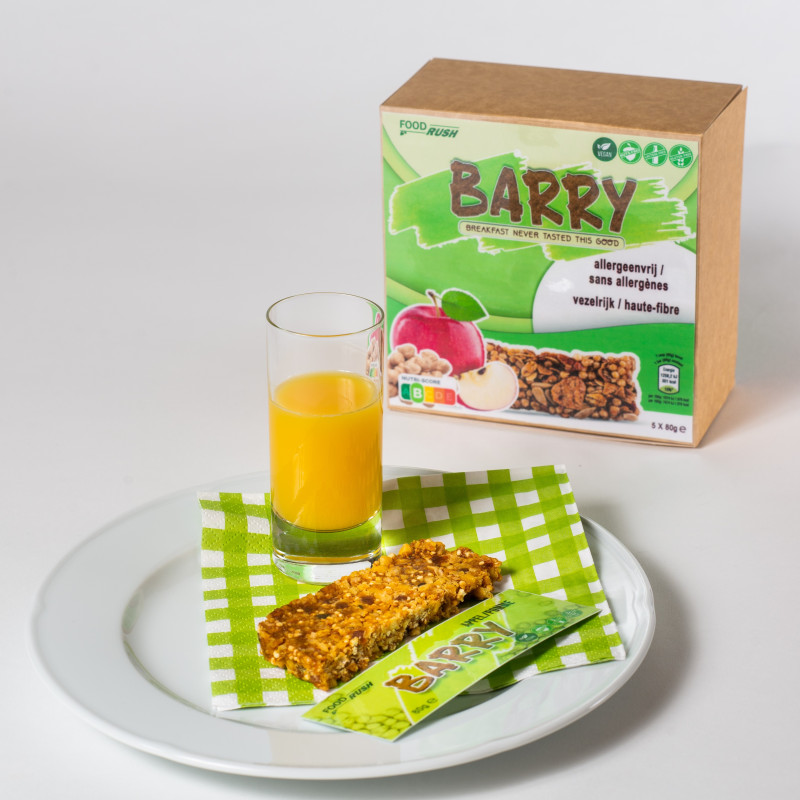
Ecotrophelia Awards goes online
European innovation competition Ecotrophelia is set to go ahead online this year, i.e. it will not be part of the Anuga event as such. A team of students from the KULeuven’s Geel campus will be representing our country with Barry, a 100% allergen-free, crunchy and yummy breakfast cereal bar. Will we be taking home an award this year? We’re keeping our fingers crossed!
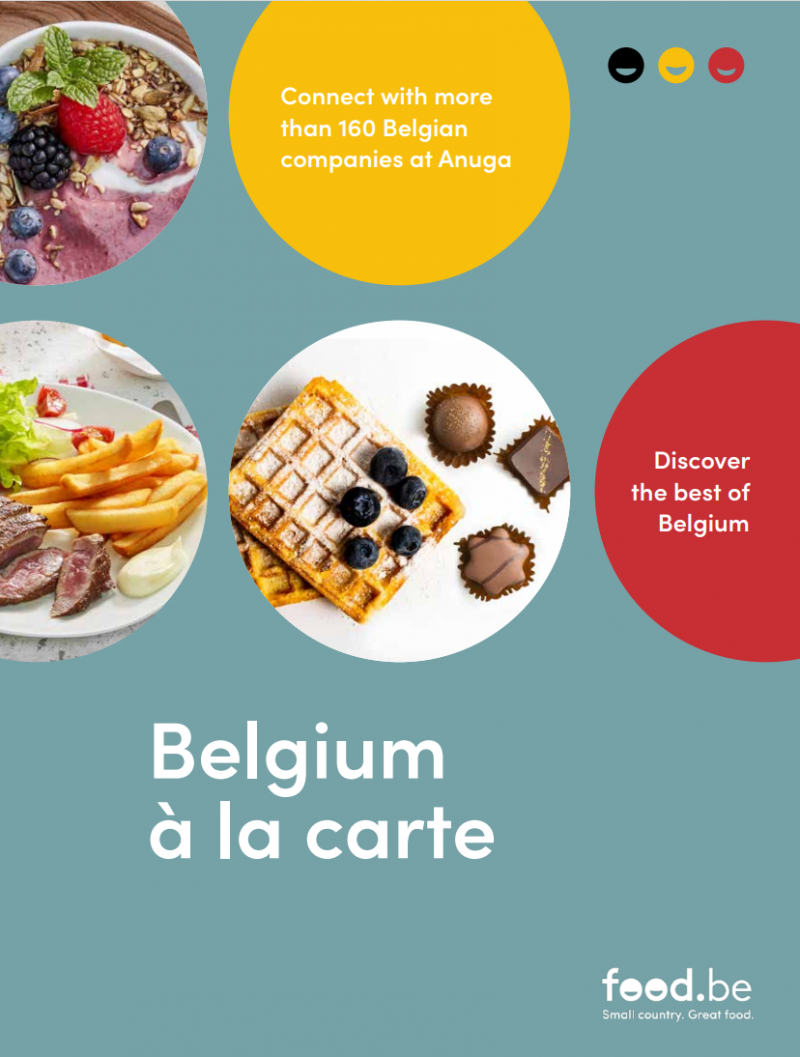
The best of Belgium in a single magazine
In the run-up to Anuga, we have put together a magazine around our promotional “Food.be – Small country. Great food.” brand, in which we give pride of place to the best our country has to offer: fantastic food and drink. We have gathered a smorgasbord of fun facts and some great stories from our food company-members.
For instance, did you know that food and drink exports account for 1/10th of Belgium’s total exports? Or that Belgian food companies are extremely efficient when it comes to avoiding food waste? So much so that waste is confined to as little as 1.5% whilst our companies continue to invest in the reuse of raw materials!


